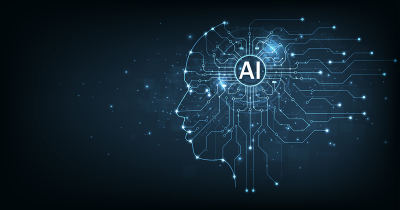
Earlier this year, while in Sacramento, California, an AI-powered robot made me a latte at a coffee shop near the state capitol building.
I found myself marveling in admiration at this new-fangled java-making machine, and yet, I was also a bit unnerved.
How neat that this machine was able to perform this multi-step task and hand me a made-to-order cup of joe. But is this gadget replacing a job that a human being could (and probably should) have? It would have been nice to have had more interaction with an actual human barista who, unlike the bot, has a face, a story, and is uniquely made in God’s image. I then wondered: Are these machines, remarkable as they are, depriving us of our humanity? And if so, do we even realize it?
If you’re a Western millennial Christian like me, you can still remember a time before the Internet was in school. But then you spent your adolescent, teen, and young adult years seeing an exponential and rapid explosion of technology. Concurrent with this rise of digital tech, we became accustomed to thinking that all the advances and the sleek, shiny devices were unquestionably good. Particularly since the dawn of the 21st century, tech culture and artificial intelligence have become so normalized that we do not even think twice about how they shape the way we live and move about in the world. Meanwhile, studies continue to emerge by neuroscientists examining how digital technology impacts cognition, rewires the human brain, and its sometimes deleterious effects on mental health.
On October 7th at Colorado Christian University, The Christian Post is honored to co-host an event called “AI for Humanity: Navigating Ethics and Morality for a Flourishing Future” in collaboration with GLOO, a leading technology platform for the faith ecosystem.
We intend to have thought-provoking discussions that are designed to spark ongoing, theologically robust conversations on artificial intelligence and ethics, from a biblical worldview. As AI technologies reshape society, we are faced with urgent, existential questions: What is a human? And what does it mean to be human in the age of AI?
CP executive editor Dr. Richard Land, who will be a featured panelist at the event, says that it behooves Christians to be ahead of the curve on these issues in light of both the dangers and opportunities that AI presents.
“It is imperative that Christians bring the full weight of Christian theology and doctrine to bear in seeking to understand how to safely use AI in ways that do not violate human personhood,” Land said in an interview with The Christian Post.
“AI will be a disruptive force in society because profound change always causes disruption – it is essential that we discuss and seek to identify and mediate that disruption as much as possible, understanding that one of the great myths of our time is that change is always progress. Often it is, but it always comes at a cost, and we should identify and minimize those costs,” he added.
What does it look like to minimize those costs? And how can Christians approach this arena with visionary leadership ordered toward human flourishing and the common good?
According to Nick Skytland, vice president of Gloo Developers, it’s fundamentally about values-aligned AI. “We want to ensure that AI is contributing to the holistic well-being of every individual. We’re living through one of history’s most transformational periods fueled in large part by the rise of AI. With AI moving fast and reaching deep into daily life, the stakes are too high to stay on the sidelines. AI must be a force for good, built on values that help people flourish and relationships thrive.”
In keeping with CP’s aim to synthesize biblically rooted core values with emerging tech and AI, GLOO’s AI Hackathon will take place in the days after the CCU event, bringing together developers, ministry leaders, technologists, publishers, and innovators to build solutions that serve the Church and the wider faith ecosystem.
With tracks that range from Bible translation to gaming and church engagement, the Hackathon will facilitate collaboration among like-minded leaders working in these spaces.
Engaging AI with theological depth and practical innovation that benefits humanity and honors God may seem like a daunting task, but for Christians, it’s a calling we must embrace.
Brandon Showalter has a bachelor’s degree from Bridgewater College in Virginia and a master’s degree from The Catholic University of America in Washington, D.C. Listen to Showalter’s Generation Indoctrination podcast at The Christian Post and edifi app Send news tips to: brandon.showalter@christianpost.com Follow on Facebook: BrandonMarkShowalter Follow on Twitter: @BrandonMShow















